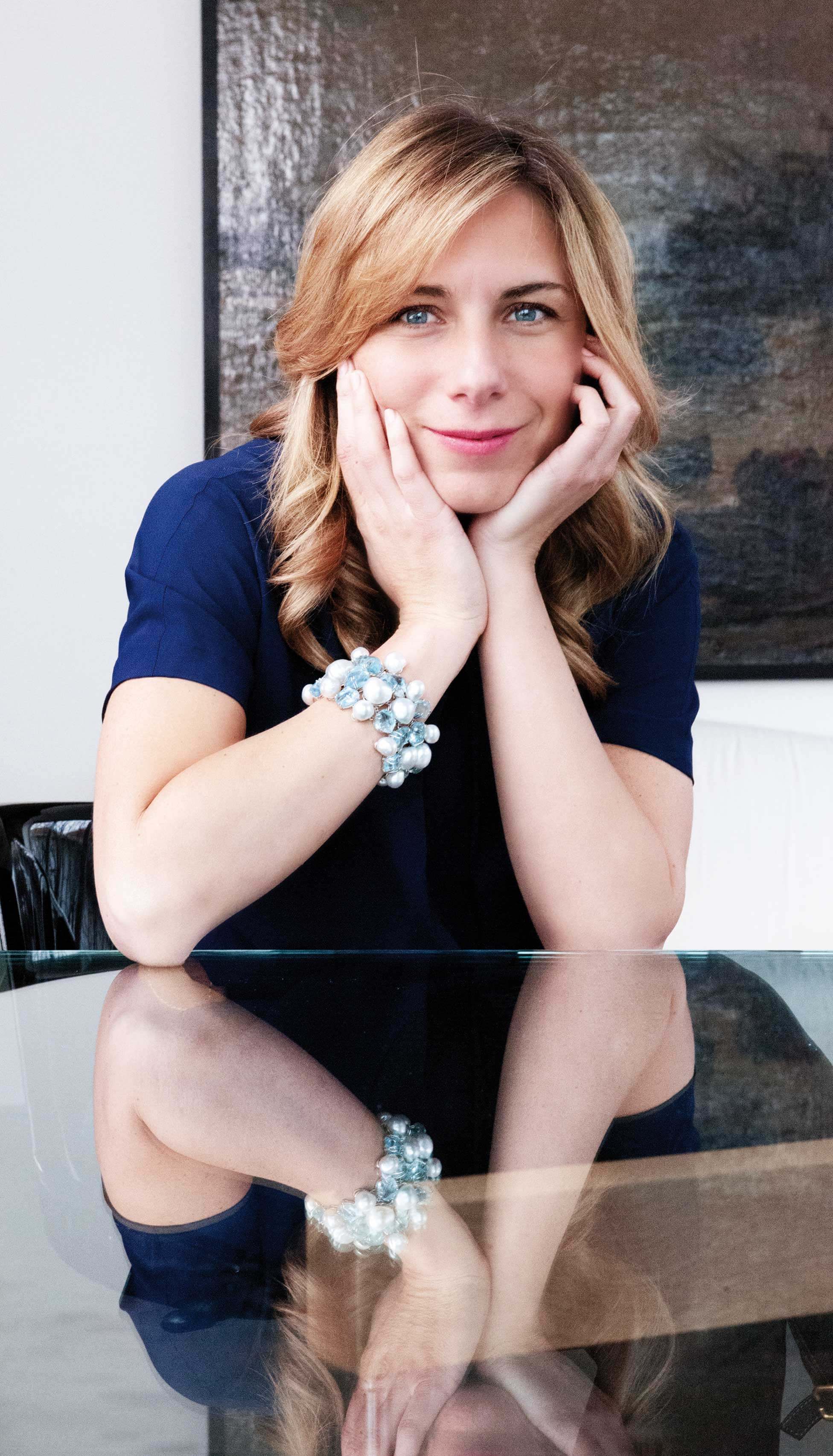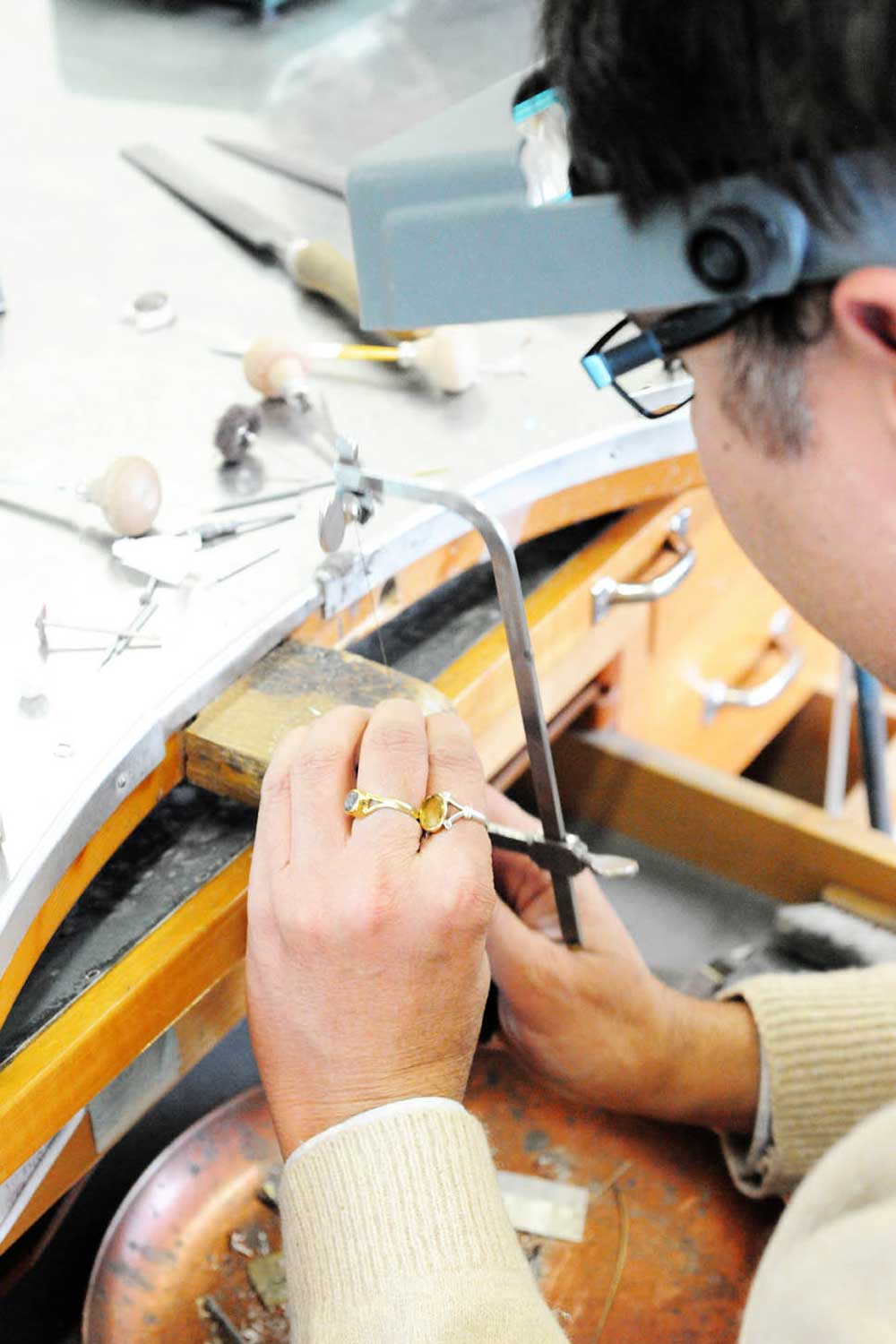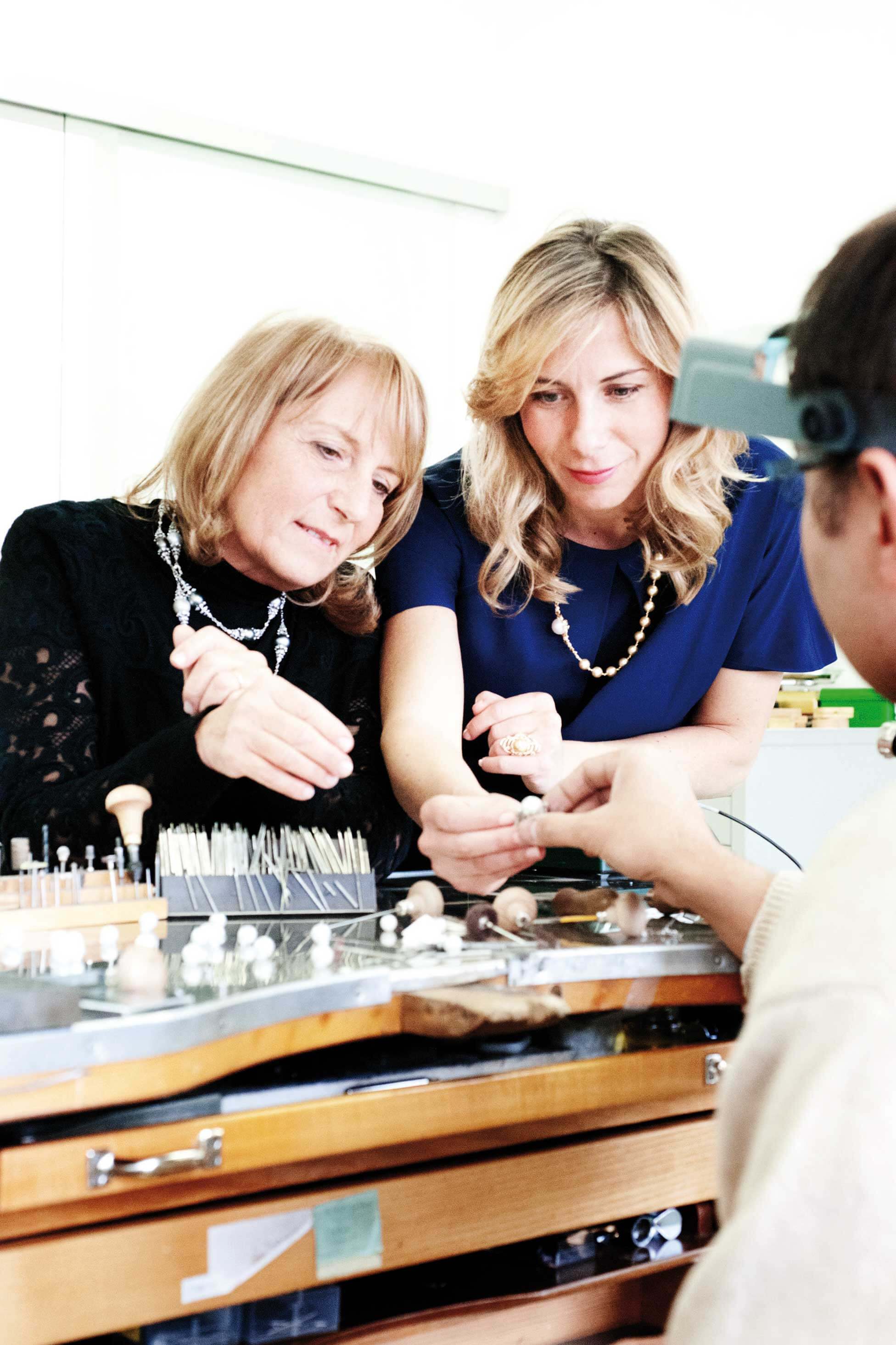Interview with Anna Gaia, CEO of Utopia, Italy
Founded less than 15 years ago, high-end Italian jewellery brand Utopia is already known internationally for its beautiful pearl-based pieces.
A third-generation family business, Utopia was born out of its 70-year old mother company, Gaia Spa – one of Italy’s leading pearl suppliers. Since then the company has transformed itself into a contemporary fashion brand.
Tharawat Magazine met with Anna Gaia, Utopia’s Founder and CEO. She spoke to us about reinventing legacies, the dangers of imitation and why pearls are the perfect gems for today’s women.

What prompted you to start Utopia fifteen years ago?
When I was 22, I got the chance to spend a year in Australia where I became very passionate about pearls. The pearl is the only gem that comes from the sea! A gem growing inside an oyster for two years – that’s a gift from nature. Everybody knows there are natural pearls and cultivated pearls, but pearl cultivation is, in fact, an intricate science. After discovering how many shapes, sizes and colours a pearl can take, I knew there would be so many ways this gem could become the heart of a great brand.
There were a lot of pearl-based jewellery brands around but to my mind, none of them had an innovative or contemporary look.
At the time, our family business was in pearl trading and didn’t have a design brand. After the Second World War right through to the 70s, my grandfather became quite well known as an Italian purveyor for South Sea and Tahiti Pearls. We were specialists in freshwater pearls, Akoya pearls, and all kinds of other pearls. We were supplying the biggest Italian jewellery makers like Damiani and Bulgari. There were a lot of pearl-based jewellery brands around but to my mind, none of them had an innovative or contemporary look.
Pearls are known as a classical gem. The challenge was to give them a different treatment, a way of wearing them for a modern look or lifestyle. Young ladies should want to wear pearls without thinking that it makes them look like their grandmothers. That was our vision 15 years ago, and I think we’ve achieved it. We did it by not straying too far from our core business but by gradually expanding our scope. I believe the only way to beat tough competition is for a brand to specialise in something it does better than anyone else – and keep specialising.
How did you manage that transition from being a supplier to becoming a brand?
We had to take employees through this enormous change – to value not only the raw material but to value the manufacturing, and the marketing.
The transition from supplier to brand was interesting because all of a sudden, craftsmanship came into play. When we set up our jewellery workshop, we decided that our collection had to be high-end and it had to be made in Italy. Our big challenge was to change our culture from that of a trading company to that of a high-end designer. We had to take employees through this enormous change – to value not only the raw material but to value the manufacturing, and the marketing.
There are two generations involved in the company: my father and me. I come from a generation where it’s not only about the product; it’s about how you communicate the product. He comes from a generation where the raw materials and resources are the priority. This makes for a good balance with a dual focus on marketing and on quality.

How does family ownership affect things now that you are a consumer-facing brand?
Utopia is a niche product and a family company; both these characteristics are very important to the end consumer. Luxury goods buyers love to meet with us and like to have a more intimate relationship. They say “Oh I met Anna and her father…” And we want to meet them too; that interaction helps us understand what our customers want.
When customers demand your personal presence, how do you deal with the expectations and pressure?
Any company owner that wants to grow their brand has to delegate. Giving people their responsibilities is the only way to develop a company unless you have super powers of course! I think if you are doing it all by yourself, you are probably doing it wrong. But you cannot delegate face-to-face ‘meet-and-greet’ appearances so it’s a delicate and challenging balancing act: keeping your personal life going while working with the business.

Was it hard for you to make your mark as the next generation?
As a next-generation member, the only way to do it is to prove yourself, prove your skills and prove that you can do as well as the previous generation – even though you might have a different style.
There is a mistake that many people make, and it’s very tempting: to ask your father to retire. But in reality, you need somebody to teach you their way of doing things before you can develop your own way of doing things.
I don’t think it works if you imitate the previous generation. You have to prove to your team that you can run the company and prove to your customer that this is a new generation, and I’m it! There is a mistake that many people make, and it’s very tempting: to ask your father to retire. But in reality, you need somebody to teach you their way of doing things before you can develop your own way of doing things. I‘m very thankful to my father who gave me freedom to develop my skills.
What are your plans for the future?
Well, competition is getting stronger and stronger. It’s a matter of making a good product and getting the marketing mix right, but I want to conquer more markets with a lower price positioning. We would still use high-quality pearls and gold, but we need a lower price positioning. This is hard, and there are very few designers who can launch an entry price product successfully.
I also want to develop more storytelling content for our brand. I think this is how we can approach new markets and hopefully become an international pearl specialist brand.
Tharawat Magazine, Issue 31, 2016
Original interview posted on Tharawat Magazine
Featured Picture Courtesy of Utopia
